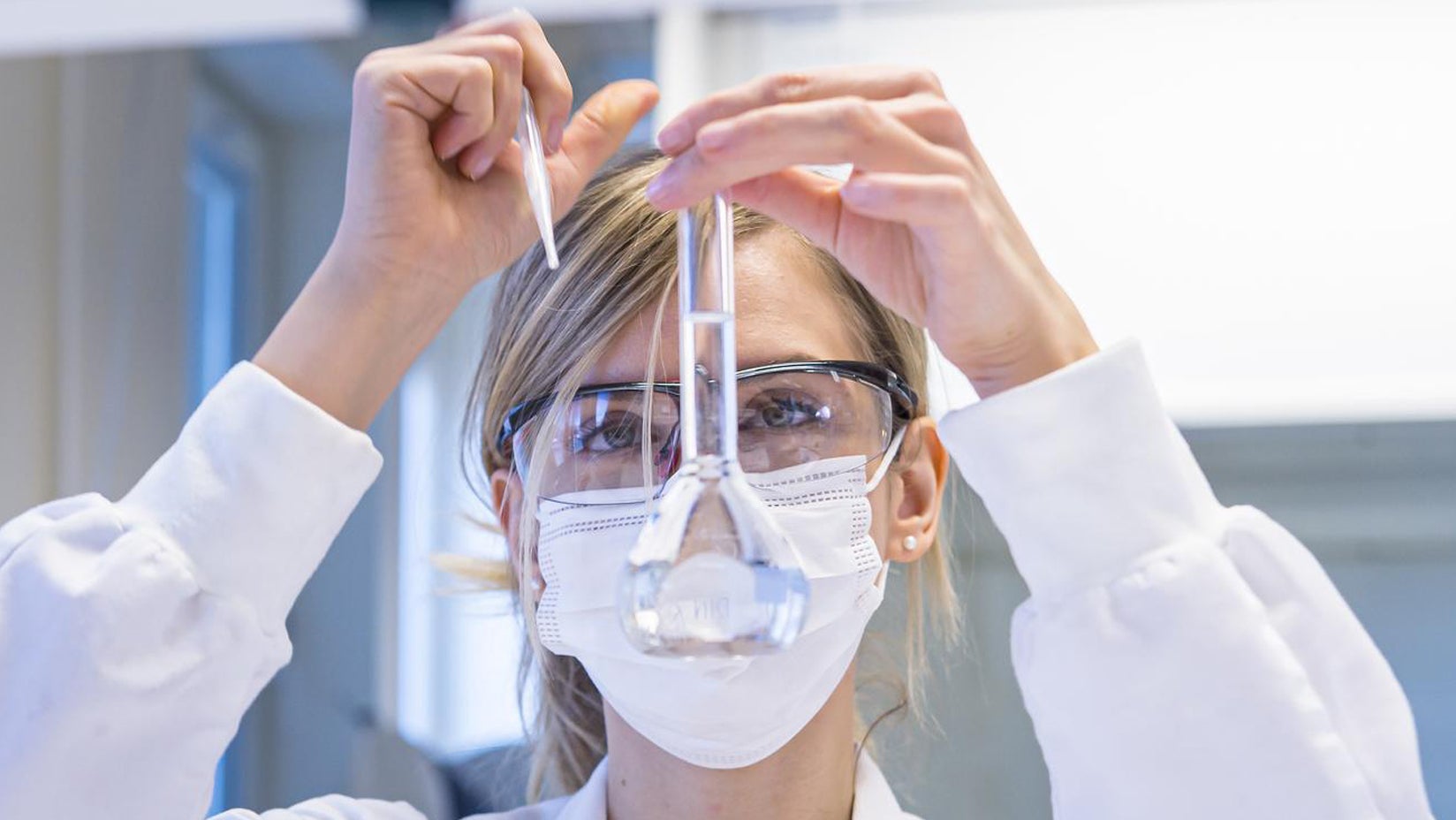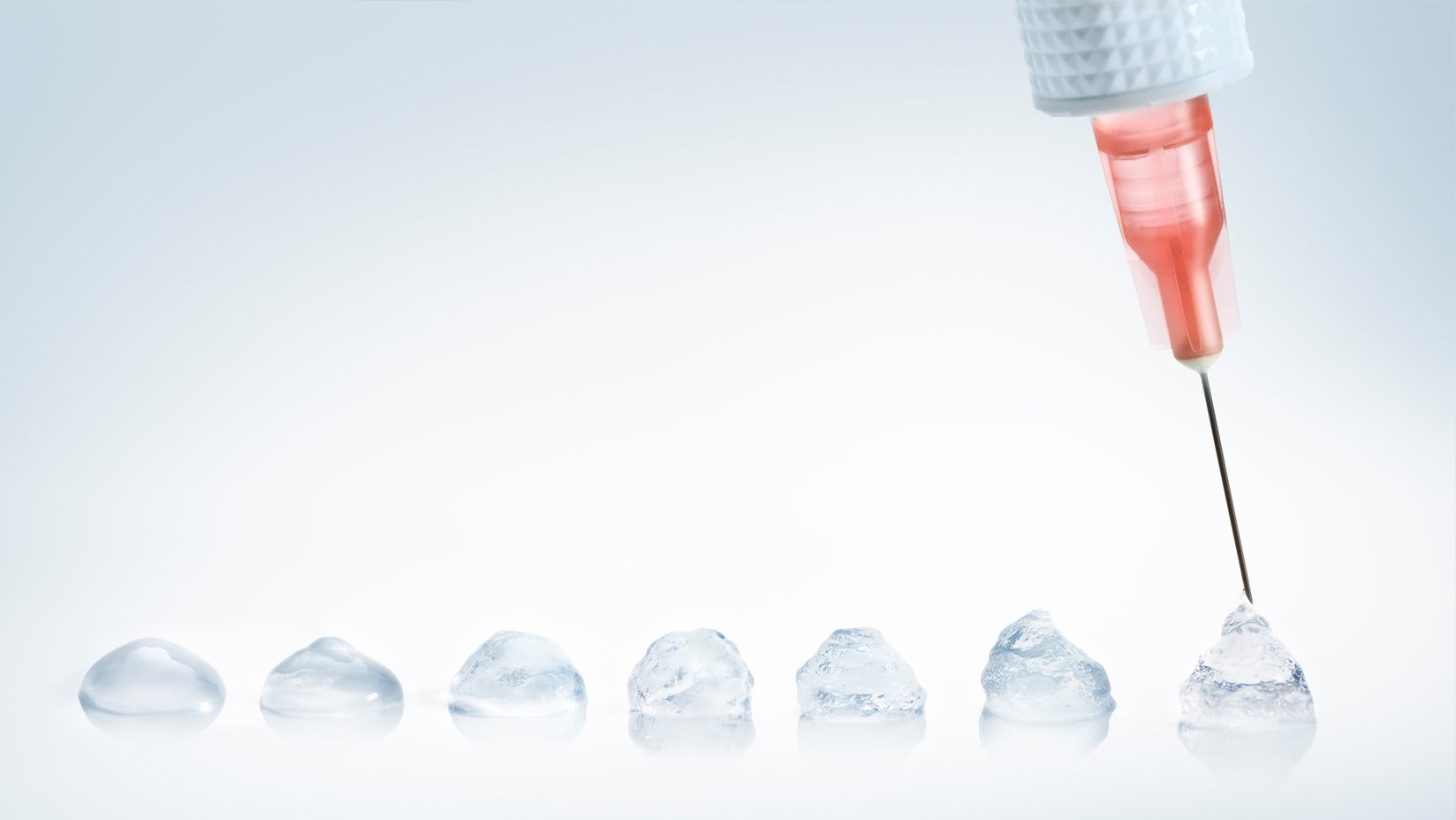Why do people want to refine their facial features?
An important reason for the use of dermal fillers is facial aging. Facial aging is a complex process that affects many parts of the face. For example, you may lose definition and bone support due to bone resorption, especially at the posterior part of the jaw and at the temples. Another consequence of aging is the loss of facial fat, leading to a loss of facial volume. In addition, fat compartments in the cheeks may descend toward the jawline, thereby affecting the whole facial contour. Furthermore, due to loss of collagen, hydration and elasticity, fine lines and wrinkles may appear. Dermal fillers with stabilized hyaluronic acid have become an important treatment alternative to correct all of these changes.
Also, people of all ages may have a desire to enhance themselves in their own unique way. For example, they may want to enhance or refine their lips, cheeks, chin, jawline or nose bridge, according to their own view of beauty and aesthetic aspirations. In all these cases, dermal fillers with stabilized hyaluronic acid can be used in a way that allows them to realize their wishes.

The history of hyaluronic acid dermal fillers
When Restylane was launched more than 25 years ago, it was the world’s first non-animal dermal filler with stabilized hyaluronic acid. Before, hyaluronic acid gels were of animal origin, with the associated higher risks of causing unwanted immune reactions.
Hyaluronic acid is a native molecule that occurs naturally in our bodies. It is a polysaccharide, a kind of sugar molecule, which can bind huge amounts of water—1,000 times its own weight. Hyaluronic acid therefore helps our bodies to retain water and to keep our body tissues soft, hydrated and flexible.
Natural hyaluronic acid in our bodies form long molecular chains. This naturally occurring hyaluronic acid degrades quickly, in 24-48 hours. Restylane dermal fillers contain hyaluronic acid that has been stabilized with a cross-linking technology. This makes the chains of the hyaluronic acid molecules form a three-dimensional network that is very similar to naturally occurring hyaluronic acid, but does not degrade at the same rate. Restylane delivers results that last up to at least 24 months with just one retreatment.2
Being the original and first, Restylane has become the gold standard of dermal fillers. It is the brand that all other hyaluronic acid dermal filler brands are compared with. Since its launch, there have been more than 40 million treatments with Restylane worldwide.1

A complimentary range of dermal fillers to create any look
The different types of Restylane dermal fillers are based on two technologies, NASHA™ and OBT™3. The NASHA and OBT technologies make Restylane the world’s most versatile range of dermal fillers that allows healthcare practitioners to deliver truly individualized results.4
The Restylane OBT gels are softer and more flexible. They are used, for example, to add volume in the midface, or to enhance contours for patients with thinner tissue coverage where a softer product is preferred. Restylane OBT gels are also used for dynamic areas of the face such as lips and cheek wrinkles.5
The Restylane NASHA gels are firmer and are used to create projection and definition. The Restylane NASHA gels are closer to the natural composition of hyaluronic acid than any other dermal filler on the market. They are suitable for lifting the cheeks, enhancing the jawline or chin, or reducing the appearance of wrinkles.6
The image shows the differences in flexibility and firmness between the Restylane dermal fillers, as well as differences in particle size. The varying properties provide healthcare practitioners with the freedom to create the results that you expect and desire.

100%
of patients saw improvement after treatment7
97%
of patients were satisfied with their results8
96%
of patients thought their results looked natural9
Skin insights
References
- Data on file (MA-39680).
- Andriopoulos B et al. Poster presented at AMWC 2019.; Data on file (MA-39364).
- OBT™ (Optimal Balance Technology) is known as XpresHAn Technology™ in the US.
- Data on file (MA-33939).; Öhrlund A. Poster presented at AMWC 2019.
- Philipp-Dormston WG et al. Dermatol Surg 2018;44(6):826-832.
- Kablik J et al. Dermatol Surg 2009;35(Suppl1):302–312.; Weiss RA et al. Dermatol Surg 2016;42:699–709.; Narins RS et al. Dermatol Surg 2011;37:644–650.
- Swift A et al. Clin Cosmet Investig Dermatol 2017;10:229–238.
- Philipp-Dormston et al. Dermatol Surg 2018;44(6):826–832.
- Rzany B et al. Dermatol Surg 2012;38:1153–1161.

